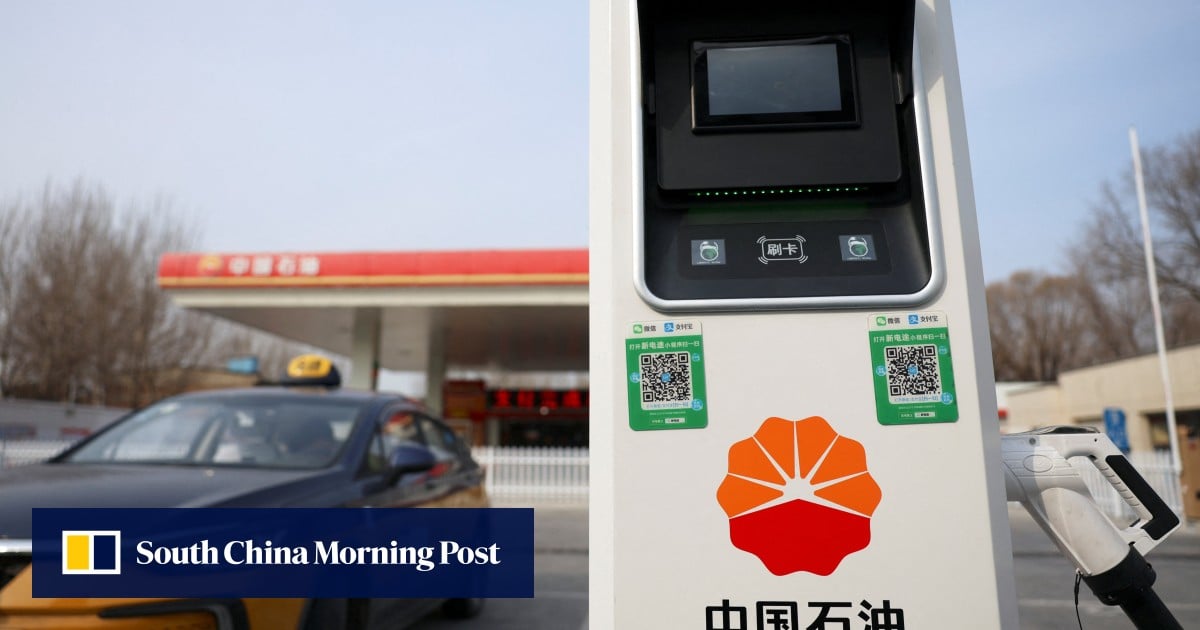“We believe that China’s oil consumption will reach its peak before 2030 at 780 to 800 million tonnes per year,” said Wu Mouyuan, vice-president at CNPC Economics & Technology Research Institute (ETRI), a research arm of state energy giant China National Petroleum Corp (CNPC), the parent company of PetroChina.

“From 2031 to 2050, oil will no longer be consumed as a transportation fuel, but converted into a feedstock for chemical production,” he said in Hong Kong, where the company released a report on oil and gas industry development.
Wu’s comments came as a rapid transformation is sweeping through the energy sector in China and the rest of the world.
Fossil fuels fell below 80 per cent of global energy consumption for the first time in 2023, data from the International Energy Agency showed. Meanwhile, investments in clean energy exceeded US$1.7 trillion last year, compared with around US$1.1 trillion in fossil-fuel energy.
In mainland China, new energy vehicles (NEVs) – comprising plug-in hybrid vehicles, pure battery EVs, and fuel-cell vehicles – accounted for 31.6 per cent of new-car sales in 2023, at 9.495 million vehicles, data from the China Association of Automobile Manufacturers showed. By 2030 NEVs are expected to hit 50 per cent of new car sales in China, the world’s largest EV market, Moody’s forecast.
Seeking to address investor concerns about the impact of China’s EV boom on oil consumption, Wu said NEVs still present opportunities.
Goldman Sachs says escalating price war in China’s EV market could ensnare BYD
Goldman Sachs says escalating price war in China’s EV market could ensnare BYD
“Our statistics show that each NEV uses at least 100 kilograms more plastic than a traditional fossil fuel-powered vehicle,” Wu said. “To manufacture lighter-weight NEVs in the future, the use of more plastics is required to replace metals, and that relies on oil for the production of plastics.”
The oil giant sees future opportunities in the use of oil to make high-value chemical products and new materials, as well as in becoming an integrated energy provider by combining its capabilities in renewable energy, hydrogen and carbon capture and storage technologies, the company said on Thursday.
“PetroChina’s goal is to become China’s second-largest hydrogen company after Sinopec,” Wu said, referring to China Petroleum & Chemical Corporation, the country’s largest oil refiner and petrochemical producer.
China’s three state-owned oil majors, Sinopec, PetroChina and China National Offshore Oil Corp, saw their annual revenues decrease by 1 to 7 per cent last year, but net profits remained strong.


